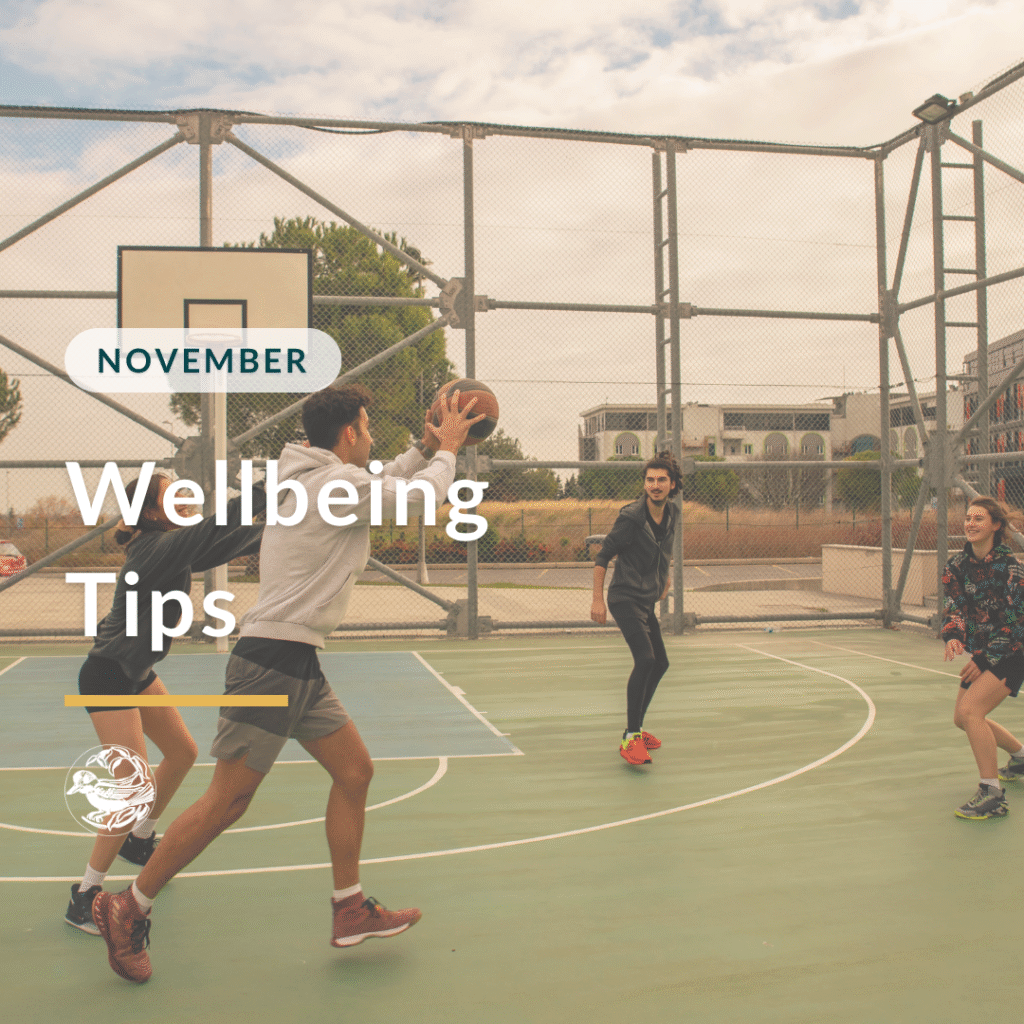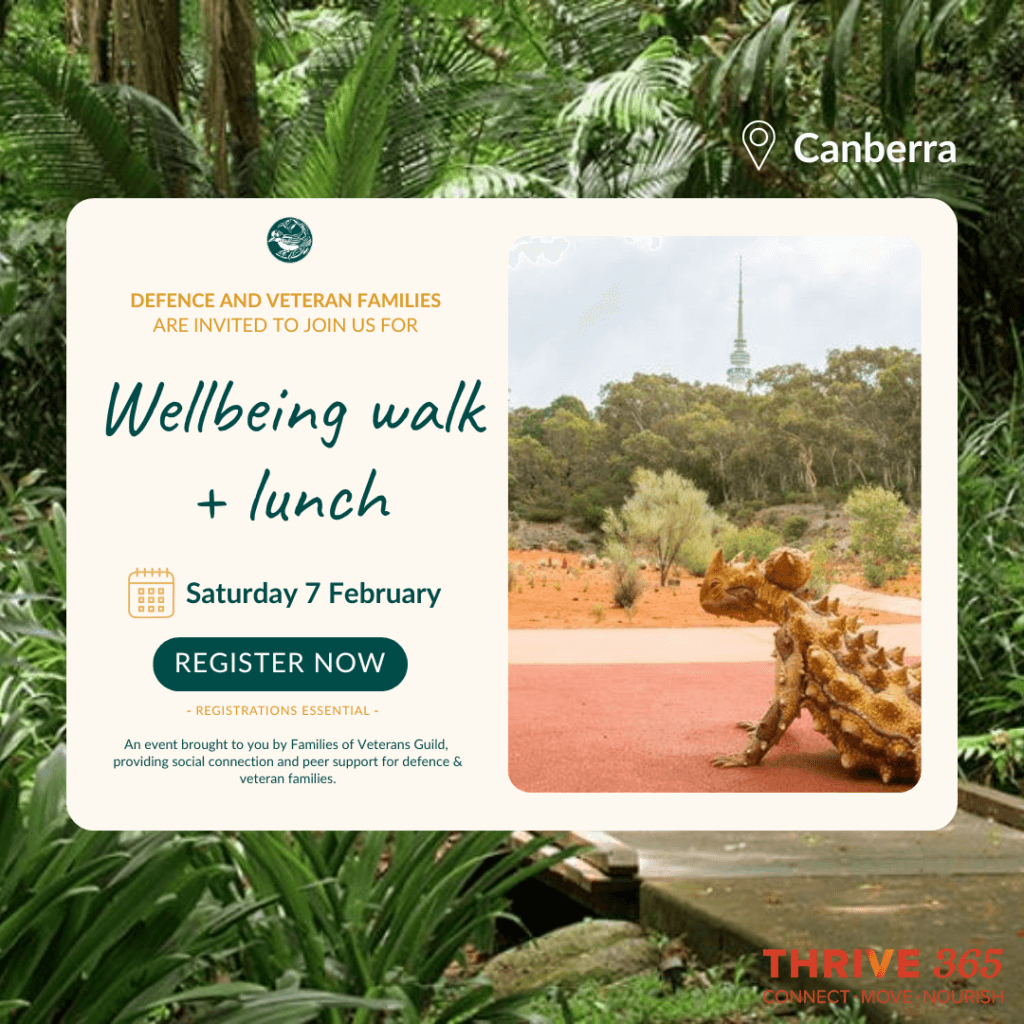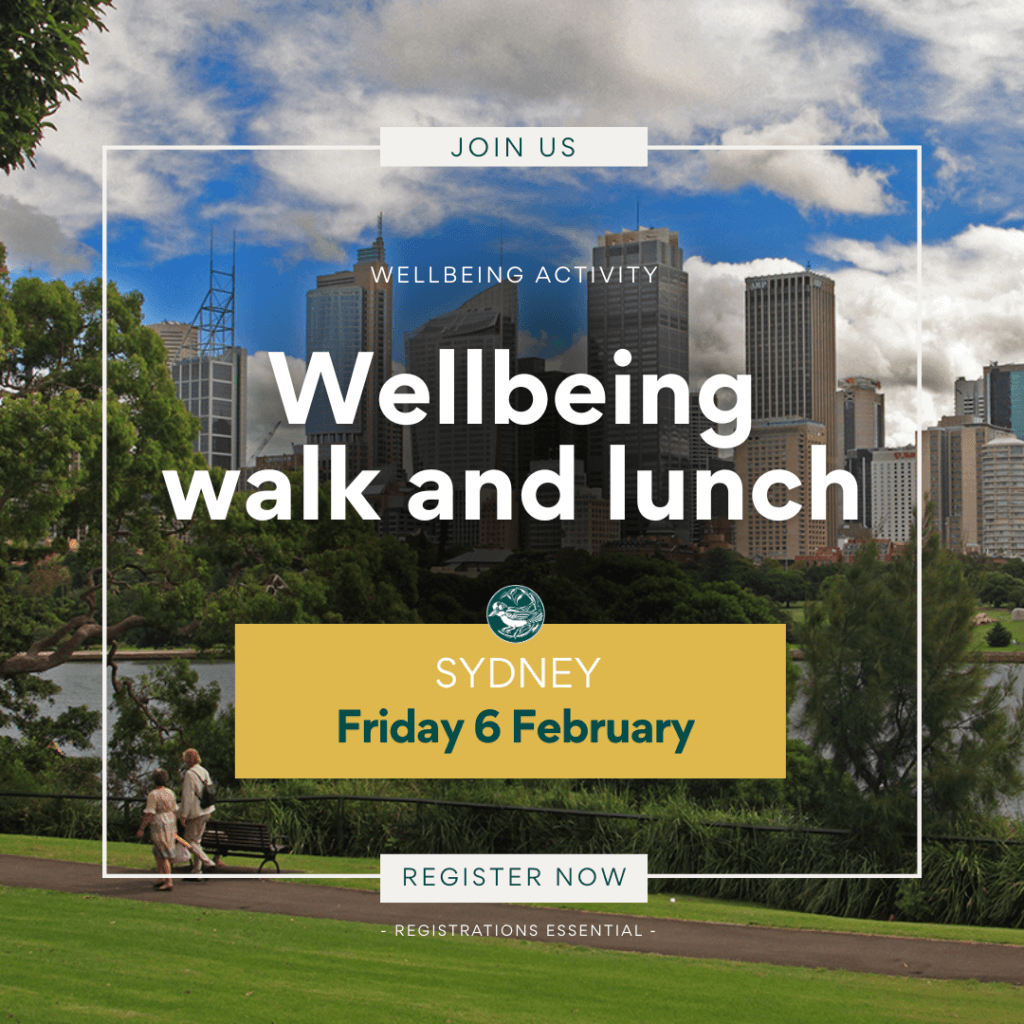Sharing our latest wellbeing tips for war widows, defence and veteran families
Each new month brings its own challenges and opportunities to pause and reset, especially this month with the Christmas season coming up. In our latest Wellbeing Newsletter, we shared two practical tips you can find below, designed to help you stay connected and provide support for your physical and mental wellbeing.
Connecting through shared physical activity
Participating in physical activity is an excellent way to foster connections with other people. Something that is essential for our wellbeing. Participation in shared activities builds relationships, reduces loneliness, fosters trust, communication and cooperation which develops our resilience and boosts our social wellbeing.
Activities can be undertaken one-on-one or in a group. There are endless possibilities to suit preferences and abilities including gentle activities like walking or more adventurous nature-based activities like canoeing or hiking. There is an activity to suit almost everyone!
The social power of physical activity
Participation in shared physical activities has many benefits for social connection for you and the whole family. Undertaking physical activities one-on-one or in a family group provides shared experiences which help to open communication channels and make precious memories, helping to reconnect and build relationships, strengthen family bonds and identity. Activities can be as simple as kicking a ball in the backyard or taking a walk on the beach or in the bush; it is not the activity that matters, it is the time spent together, and the experience shared.
Veteran families have a unique understanding of the challenges of making new social connections, and participation in shared physical activities is an amazing way for everyone in the family to foster new friendships after relocating. Connecting with people who enjoy the same physical activities as you, helps to break down barriers, provides avenues for conversation and create bonds. Participation in activities and new experiences with other people helps to reduce isolation, build support networks and strengthen community connectedness, belonging and collective identity, which has a wonderful impact on our overall wellbeing.
Reframing anger as a foundation for healing
In Brene Brown’s Atlas of the Heart, she speaks about anger as being an emotion that we feel when something prevents us from reaching a desired outcome or when we feel that there has been a violation of perceived justice. Anger can then be understood as a response emotion. Brene describes this as an action or full-contact emotion. This means that anger is a powerful emotion which can activate our nervous system impacting our physical body and mind through our thoughts, feelings, and behaviours. Studies have shown how this disruption to our nervous systems delicate balance suddenly or compacting over time can lead to dysregulation and illness or injury.
Understanding anger with Brene Brown
This research highlights the importance of working with and healing anger to support the rebalancing of our nervous system thereby preventing ill health and maintaining a sense of wellbeing. In order to acknowledge and work through anger it is important to explore the role of anger as an emotion. Brene challenges the notion that anger is a primary emotion, instead pointing out that anger can often act as an umbrella covering other more complex emotions such as grief and shame below.
Brene says that anger often acts as a warning sign asking us to stop and reflect upon what might be going on for us or someone else below the surface and behind presenting behaviours. For example, Brene argues that anger in its purest form is a compassionate response to experiencing or witnessing perceived injustice. Therefore, if we remain in a curious conversation with anger, we can more mindfully connect and hear our own and others deeper lying needs for healing.
It is important to look at what lies behind the presenting emotions and behaviours of the people we walk alongside. Through our Writing Through Grief online wellbeing activity, we focus on exploring grief, an emotion which can often be hidden by anger through creative writing frameworks. This structured form of exploration gives each participant permission to name, own, bear witness to, and heal from their anger and hidden pain.
Brene shares that when we deny our anger, we deny our pain. This means that it is important to our health and wellbeing to be able to safely externalise and mindfully explore our anger to better understand ourselves and those around us acknowledging validating, and harnessing anger as an access point to forgiveness, growth, insight, and healing.
Subscribe to our Wellbeing Newsletter for monthly updates on all activities available in your area, what’s been happening in our Wellbeing Program and also for more tips like this.




